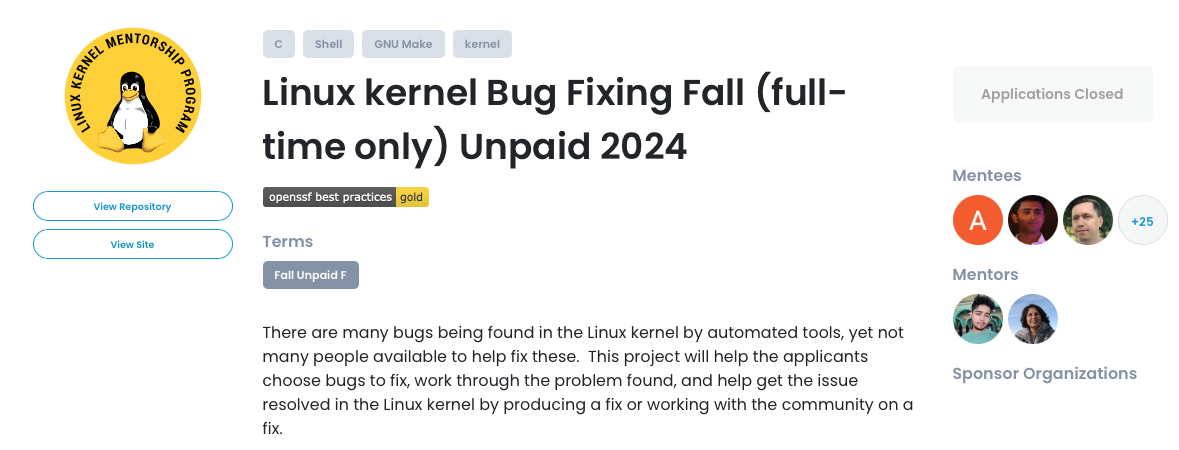

My Linux Kernel Mentorship Journey .
I was thrilled to be selected for the Linux Kernel Mentorship Program in Fall 2024. This opportunity marked a significant milestone for me—it was a dream come true to contribute to the Linux kernel, something I had only envisioned before. Now, as I close this chapter on a good note with 7-8 of my patches successfully merged, I’m excited to share my journey..

Participating in the Linux Kernel Mentorship Program has been a transformative experience, marking a significant milestone in the once journey as an embedded engineer. It provided invaluable mentorship, tools, and community support, allowing them to contribute to the Linux kernel and gain deeper insights into its complexities.
While facing challenges, the program fueled their determination and equipped them with the confidence to tackle kernel development and other open-source projects. The experience has turned a long-held dream into reality, and the once encourages others to take on the challenge of kernel development, emphasizing that the rewards far outweigh the difficulties
The mentorship officially began in September, led by Shuah Khan and Anup Sharma. They hosted weekly office hours where we explored essential tools like cscope and learned about critical debugging methods, Git tips, and how to interpret syzkaller reports. These sessions were invaluable, offering clarity on complex concepts and providing a platform to discuss progress and challenges. And for the hardest part for me was writing a short log (funny)
Beyond the office hours, the program’s dedicated Discord server became a goldmine of support. Mentors like Ricardo were like the Google Search of kernel troubleshooting—always ready with the right answer, and probably faster than I could type my problem. Whether it was setting up environments or solving tricky bugs, Ricardo was the friendly guide through the maze of kernel madness, ensuring I didn’t get lost in the digital abyss. Thanks Ricardo :)
As an avid embedded systems enthusiast, my admiration for Linux knows no bounds. The allure of exploring its complexities and unraveling its inner mechanics had captivated my thoughts for quite some time. This unwavering passion eventually guided me to the Linux Kernel Mentorship Program.
The program’s selection process included a few preparatory tasks to get us ready for the journey ahead. These tasks helped us set up our development environments, understand the basics of contributing to the Linux kernel, and learn how to upstream patches successfully. Along the way, we also got familiar with common kernel errors and debugging tools. While the tasks were challenging, they turned out to be a fantastic learning experience.
After sending in my application, I had to endure a nerve-wracking, month-long wait for the results. When I finally found out I was selected out of 400 applicants, it was an unforgettable moment of pride and excitement. Being chosen to contribute to an operating system powering millions of devices felt absolutely incredible!